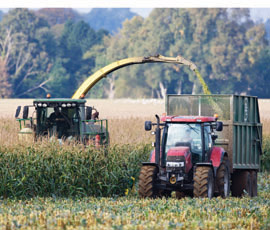New biomass regulations will link reporting to payments for farmers

Those who receive subsidies under the Renewables Obligation (RO) and the Renewable Heat Incentive (RHI) will soon need to prove their biomass feed-stocks meet sustainability criteria in order to receive funding.
The new government regulations are designed to ensure public money funds bioenergy that supports sustainable land-use. The changes will affect those receiving money from the RO and RHI, for wood and plant- based biomass but will not affect energy production from waste biomass like anaerobic digestion. Feed-in-tariffs (FiTs) will also not be affected.
The detail of how the regulations will be implemented is yet to be decided, but the main burden of reporting will fall on those supplying raw materials, rather than the processor. Suppliers will need to show buyers their raw materials meet sustainability criteria.
“It is the right thing to do in principle – if you’re taking public money it’s reasonable to be asked to prove you are sustainable – but there are a number of challenges in how it gets done,” said Paul Thompson, head of policy at the Renewable Energy Association.
A registered suppliers list will be created and is timetabled to be up and running by April. Although it will not be mandatory for farmers growing bioenergy crops to be on the list, they will need to provide information to receive payments, whether they decide to register or not.
However, as more suppliers registered, it was likely registration would become necessary in order to access the market as a trusted supplier, said Mr Thompson.
Not buying from a registered supplier would mean bioenergy producers would have to prove the sustainability of their supply chain in other ways, which would be harder and more complicated, he said.
Farmers growing bioenergy crops should find the changes relatively simple, said Mr Thompson, as the regulations will be based on land use change. Growers will, for example, need to show they have not converted land that is high in biodiversity or carbon, into bioenergy crops.
The development of the suppliers register has been put out to tender, and will largely determine the reporting mechanisms that will be used, said Mr Thompson.
More detail is expected to emerge in April.
Follow the biomass route to lower farm heating costs
